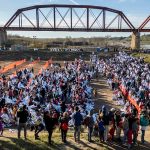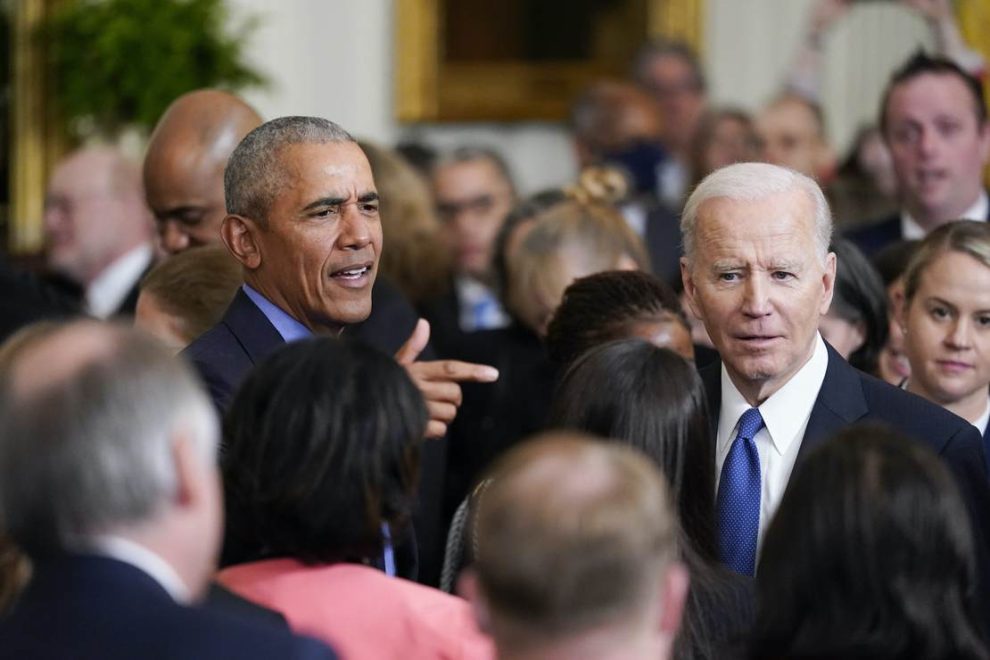A new poll finds 69 percent of Democrats surveyed believe that Arizonans were denied the “sacred right to vote” due to the Election Day polling site problems that happened in Maricopa County leading to hours-long lines.
Further 65 percent of Democratic respondents in the Rasmussen Reports survey agreed it likely affected the outcome of the U.S. Senate race in Arizona between Democratic Sen. Mark Kelly and Republican candidate Blake Masters.
Overall, 71 percent of the likely U.S. voters thought it likely affected the outcome, including 40 percent who said it “very likely” did.
Fact Check: True pic.twitter.com/qGqMhoFnuS
— Rasmussen Reports (@Rasmussen_Poll) December 1, 2022
Kelly won the race by 51.4 percent to Masters’ 46.5 percent, a difference of about 125,000 votes.
The RealClearPolitics polling average had the race pretty much at a dead heat going into Election Day. Kelly ended up winning the match-up 51.4 percent to Masters’ 46.5 percent, a difference of about 125,000 votes.
The race for the open governor’s seat was much tighter, with Democrat Katie Hobbs topping Kari Lake by just 17,000 votes.
Those surveyed were not asked about that race, but clearly if the senate race was impacted, how much more so in the governor’s contest.
Lake has argued that since Republicans voted 3-to-1 over Democrats on Election Day, what happened was large-scale vote suppression of her supporters.
Democrats clearly are sympathetic to that view.
Rasmussen lead pollster Mark Mitchell pointed out in a Real America’s Voice interview that voter suppression is a big deal with Democrats, really the biggest one when it comes to elections.
“If you ask somebody if it’s more important to prevent cheating or to make sure everyone votes, every single demographic says it’s more important to prevent cheating, except for Democrats,” he said.
“Here is an example where very clearly maybe hundreds of thousands of people were disenfranchised,” Mitchell added. “That is breaking through the Democrat shell on this issue in a big way.”
He further noted when Rasmussen asked, “Do you agree or disagree with this statement about the election problems in Arizona: ‘This isn’t about Republicans or Democrats. This is about our sacred right to vote, a right that many voters were, sadly, deprived of on November 8th?’” 72 percent agreed, including 69 percent of Democrats.
“And that’s a Kari Lake quote,” Mitchell said. “We have 69 percent of Democrats, 35 percent strongly agreeing with Kari Lake, that voters in Arizona were denied their sacred right to vote.”
"We have 69% of Democrats, 35% strongly agreeing with @KariLake, that voters in Arizona were denied their sacred right to vote."
— Kari Lake War Room (@KariLakeWarRoom) December 1, 2022
The Rasmussen survey of 750 U.S. Likely Voters was conducted on November 27-28, 2022. The margin of error is +/- 3.6 percentage points.
Lake held the lead in nearly every poll in the month-and-a-half period leading into the Nov. 8 election and had a 3.5 percent advantage in the RCP average, yet Hobbs won.
One explanation for Lake coming up short in the vote tally, and what her campaign has pointed to, is the chaos that happened in Maricopa County on Election Day, when ballot tabulators and ballot printers were not functioning at 71 polling locations, according to the county — though the Lake campaign puts the number at 114, or 53 percent of the sites.
Here is one example I witnessed firsthand in the ruby-red community of Anthem on the north side of Phoenix, where the line was about two hours both at midday and again at 6 p.m.
Here is the problem w/ what happened in Maricopa County on Election Day. This is Anthem, north of Phoenix at about 1:15 pm. Ruby red district of about 30K people. Only one polling location. Ballot tabulators not working in the morning. 2 hr wait to vote midday and still at 6 pm. pic.twitter.com/CY35yQWwq5
— Randy DeSoto (@RandyDeSoto) November 14, 2022
Here’s another example in Chandler, southeast of Phoenix.
I was outside a polling location in SE Chandler for 3 hours Tues morning as a campaign supporter; we were told that polling locations in N Gilbert were down, so those voters were being sent to ours…wonder how many never voted at all, on leaving Gilbert?https://t.co/bNmK9rkTPa
— Jennifer Alvey (@Jennife97135834) November 14, 2022
A week after the race, Lake told supporters, “What happened to Arizonans on Election Day is unforgivable.”
“Tens of thousands of Maricopa County voters were disenfranchised,” she added, as footage of the long lines throughout the county appeared on the screen.
Arizona, we are still in the fight. pic.twitter.com/ytaGvqG5J0
— Kari Lake (@KariLake) November 17, 2022
Poll worker Mike Peterson told the Maricopa County Board of Supervisors on Monday that hundreds of people at his voting location in the Paradise Valley area of Phoenix were in effect disenfranchised.
Peterson said 675 people were waiting in line when his location officially closed at 7 p.m. The would-be voters could have stayed in line and waited to cast a ballot, but most apparently gave up.
“Of those 675, do you know how many came in? One hundred and fifty. It means that you have personally disenfranchised voters. They have [come], they have seen and they have given up because they know what is going on,” he said.
In other words, more than 500 people who clearly wanted to vote did not, and that was just voters who showed up near the end of Election Day at one site.
Maricopa Poll Worker CONFIRMS: Poll Workers WERE NOT trained properly, voters were 100% disenfranchised.
“Every single one of us who’s a poll worker right now is making fun of you” pic.twitter.com/HjXrWM50Bx
— Kari Lake (@KariLake) November 28, 2022
This figure would not include those who might have been discouraged by long lines during the day.
Given the approximately 17,000 votes separating Lake and Hobbs, it would take a net of about 240 Lake supporters being prevented or discouraged from voting in each of the 70 ill-functioning polling stations to make the difference. If the true number of polling locations experiencing issues was 114, that would translate to 149 voters per location.
Lake has called for a redo of the election in Maricopa County, and the candidate said Wednesday she will be seeking that in court.
.@KariLake: “The people who chose to show up on Election Day were abused by a system ran by men who wanted to bring me down & stop a movement in Arizona.” pic.twitter.com/Q7Kk1OeqZo
— Kari Lake War Room (@KariLakeWarRoom) November 30, 2022
Democrats are right: If voters are disenfranchised, especially on this scale, you didn’t have a fair election.
Certainly, if the roles were reversed and Democrats vote three-to-one on Election Day, the race was not fair.
Any person of goodwill would clearly see a redo of the Maricopa County election is the only just remedy.
Story cited here.
























